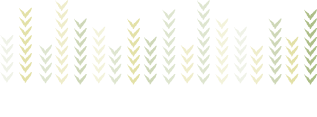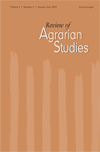|
Ethics Policy The Review of Agrarian Studies (RAS) complies to the comprehensive Ethics Policy outlined below. All participants – editors, peer reviewers, authors, publishers – are required to adhere to the ethical standards prescribed here.
For RAS Editors Fair Play Manuscripts submitted to RAS are evaluated for their intellectual content without regard to race, gender, sexual orientation, religious belief, ethnic origin, citizenship, or political philosophy of the author(s). Confidentiality The Editor and any editorial staff/members do not disclose any information about a submitted manuscript to anyone other than the corresponding author, reviewers, potential reviewers, other editorial advisers, and the publisher, as appropriate. Disclosure and Conflicts of Interest Unpublished materials disclosed in a submitted manuscript are not used in Editor’s or reviewers’ own research without the explicit written consent of the author(s). Publication Decisions The Editor of RAS is responsible for deciding which of the submitted articles should be published. The Editor may be guided by the policies of the journal’s Editorial Board and constrained by such legal requirements as shall then be in force regarding libel, copyright infringement, or plagiarism. The Editor may confer with other editors or reviewers in making this decision.
For Peer Reviewers Contribution to Editorial Decisions The peer review assists the Editor in making editorial decisions and through the editorial communication with the author, may also assist the author in improving the manuscript. Promptness Any invited referee who feels unqualified to review the research reported in a manuscript submitted to RAS or knows that its timely review will be impossible should immediately notify the Editor so that alternative reviewers can be contacted. Confidentiality Any manuscripts received by RAS for review are treated as confidential documents. They are not shown or discussed with others except if authorised by the Editor. Standards of Objectivity Reviews should be conducted objectively. Personal criticism of the author is unacceptable. Referees are required to express their views clearly with appropriate supporting arguments. Acknowledgement of Sources Reviewers should identify relevant published work that has not been cited by the authors. Any statement that an observation, derivation, or argument has been previously reported should be accompanied by the relevant citation. A reviewer should also call to the Editor’s attention any substantial similarity or overlap between the manuscript under consideration and any other published data of which they have personal knowledge. Disclosure and conflict of interest Privileged information or ideas obtained through peer review must be kept confidential and not used for personal advantage. Reviewers should not consider evaluating manuscripts in which they have conflicts of interest resulting from competitive, collaborative, or other relationships or connections with any of the authors, companies, or institutions connected to the submission. The final decision on whether an article can be published rests with the Editor.
For Authors Authorship In matters of authorship, we follow the following guidelines to distinguish authors from other contributors deserving acknowledgement. By these guidelines, the following four criteria must be met to be credited as an author:
The corresponding author should ensure that all appropriate co-authors (according to the above definition) and no inappropriate co-authors are included in the author list of the manuscript and that all co-authors have seen and approved the final version of the paper and have agreed to its submission for publication. Please note that the following types of authorship are considered unacceptable:
If any disagreement arises over who is an author and who needs to only be acknowledged, the Editor’s decision would be final. Contribution In matters of contribution, we maintain that individuals who are involved in a study but do not satisfy the Review’s criteria for authorship are to be listed under “Acknowledgements.” These individuals may have assisted in the research work by providing advice, providing research space, departmental oversight, and financial support. Reporting Standards Authors reporting results of original research should present an accurate account of the work performed as well as an objective discussion of its significance. Underlying data should be represented accurately in the manuscript. A paper should contain sufficient detail and references to permit others to replicate the work. Fraudulent or knowingly inaccurate statements constitute unethical behaviour and are unacceptable. Originality and Plagiarism The authors should ensure that they have written entirely original works, and if the authors have used the work and/or words of others they are responsible to ensure that this has been appropriately cited or quoted. The Review maintains that the contents of the article submitted should be entirely the author’s and material from any other source must be properly cited, quoted, and acknowledged. The Review promotes research integrity and transparency; hence, plagiarism in any form is not allowed. Ideas taken from others, even when expressed in the author's own words, constitute plagiarism. In other words, ideas sourced from elsewhere must be acknowledged. If at all a complaint is filed regarding plagiarism, an investigation will be conducted by the editorial board members of the Review. The final decision on the publication of the article rests with the Editor. Peer Review and Appeals The Review follows an unbiased, objective, and double-blind peer review process that aims at accuracy of data in the articles published. The Review will not receive an “Appeal” if the author has received a rejection letter. However, if the author is sent a file with details of the perceived shortcomings in the manuscript, the author may address them and resubmit the article. A resubmitted article will go through the entire peer review process and the final decision on the publication of the article rests with the Editor. Multiple, Redundant, or Concurrent Publication (Ethical Oversight) An author should not, in general, publish manuscripts describing essentially the same research in more than one journal or primary publication. Parallel submission of the same manuscript to more than one journal constitutes unethical publishing behaviour and is unacceptable. Acknowledgement of Sources Proper acknowledgment of the work of others must always be given. Authors should also cite publications that have been influential in determining the nature of the reported work. Disclosure and Conflicts of Interest All authors should disclose in their manuscript any financial or other substantive conflict of interest that might be construed to influence the results or their interpretation in the manuscript. All sources of financial support for the project should be disclosed. Authors and editors unable to present data objectively must disclose their public or private interests. Fundamental Errors in Published Works When an author discovers a significant error or inaccuracy in their own published work, it is their obligation to promptly notify the journal’s Editor and cooperate with them to either retract the paper or to publish an appropriate erratum. Post-Publication Discussions and Corrections Corrections are accepted within the first week of the online publication of the article. The Review does not accept corrections once the issue is closed and has gone to print. The Review invites scholarly discussions and comments on the articles published. These may be sent to the Editor at editor@ras.org.in. The decision to publish a comment or response rests with the Editor. Data Sharing and Reproduction If an individual or an institution wishes to share any data, findings, or analyses contained in a publication in the Review, they must give proper credit to the original article(s). Author(s) published in the Review, who wish to reproduce their work in other journals, conference volumes, books, etc., must send an email to coordinator@ras.org.in seeking permission to reproduce their article. On receiving the permission to do so, the author/s must give attribution to the original article in the first footnote using the recommended citation. Protecting Intellectual Property The copyright of intellectual property rests with the authors, and not with the Review, for both the open access online edition and the priced offline edition.
Publisher’s Confirmation In cases of alleged or proven scientific misconduct, fraudulent publication or plagiarism, the Publisher (Tulika Publishers), in close collaboration with the RAS Editor, will take all appropriate measures to clarify the situation and amend the article in question. This includes the prompt publication of an erratum or, in the most severe cases, the complete retraction of the affected work. Tulika Publishers and RAS do not discriminate on the basis of age, colour, religion, creed, disability, marital status, veteran status, national origin, race, gender, genetic predisposition or carrier status, or sexual orientation in its publishing programmes, services, and activities.
Scientific Misconduct and Breaches of Publication Ethics Scientific misconduct includes fabrication, falsification, and plagiarism by the authors. Breaches of publication ethics include failure to reveal financial conflicts of interest; omitting a deserving author or adding a non-contributing author; misrepresenting publication status in the reference list (erroneously claiming that a paper is “in-press”); self-plagiarism without attribution; and duplicate or redundant publication. Editorial action should be expected in breaches of publication ethics and cases of scientific misconduct. Any and all authors submitting a manuscript to RAS agree to adhere to the ethical guidelines contained in the Author Guidelines and acknowledge that they are aware of the consequences that may result following breaches of publication ethics. Consequences include notification of the breach in the journal, retraction of published articles, notification of institutional authorities, subsequent institutional investigation, and loss of privileges of publishing in the journal. Redundant or duplicate publication is publication of data, tables, figures, or any other content that substantially overlaps with other material published previously or to be published in the future. This includes work published by others or any author of the manuscript submitted to RAS. When submitting a paper, the corresponding author must make a full statement to the Editor about all submissions and previous reports (in any language) that could be regarded as redundant or duplicate publication of the same or very similar work. The corresponding author is also responsible for alerting the Editor if the work includes subjects about which a previous report has been published or about a manuscript that is under review by, submitted to, in press at, or to be submitted to or published in another journal in the future. Any such work must be referred to and referenced in the new paper and a copy of the material should be included with the submission as a supplemental file. Abstracts presented at scientific meetings (with no press releases and not discussed in detail at a symposium) are not considered pre-published material. Plagiarism is the use of others’ ideas or words without properly crediting the source. If authors include one or more sentences verbatim from another source, the original source must be cited and the sentence(s) put in quotation marks to avoid plagiarism. Authors must not use materials of others (text, figures, images, tables) without permission and attribution, including their own published work. Editorial action should be expected in cases of scientific misconduct and breaches of publication ethics. Editorial actions that may be taken include notification of the breach in the journal, retraction of published articles, notification of institutional authorities, and loss of privileges of publishing in RAS. Complaints The authors who may have a complaint should, in the first instance, write/e-mail to the Editorial Coordinator. In case it does not resolve the issue, the complaint should be forwarded to the Editor. The final decision regarding this rests with the Editor. |


